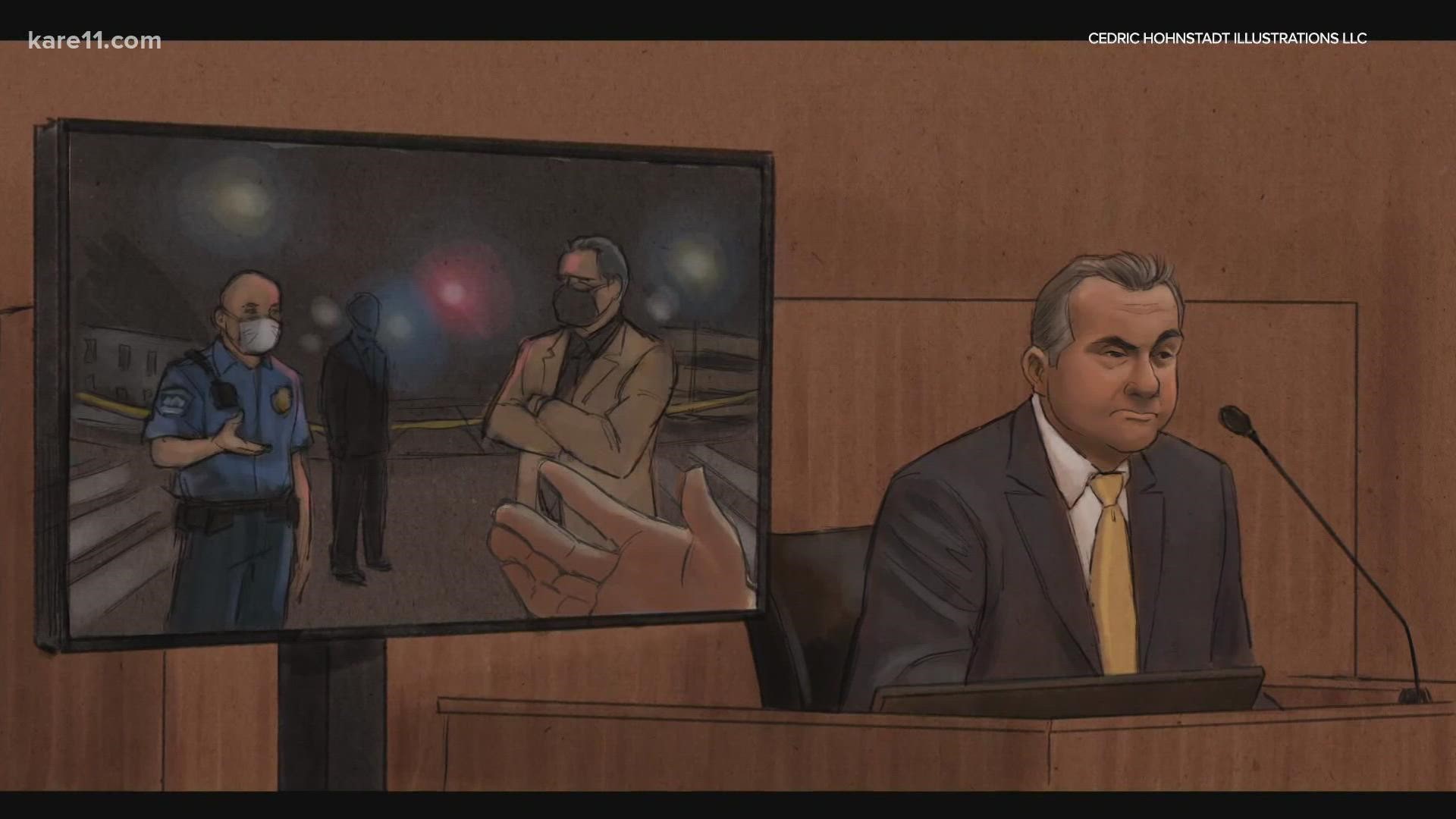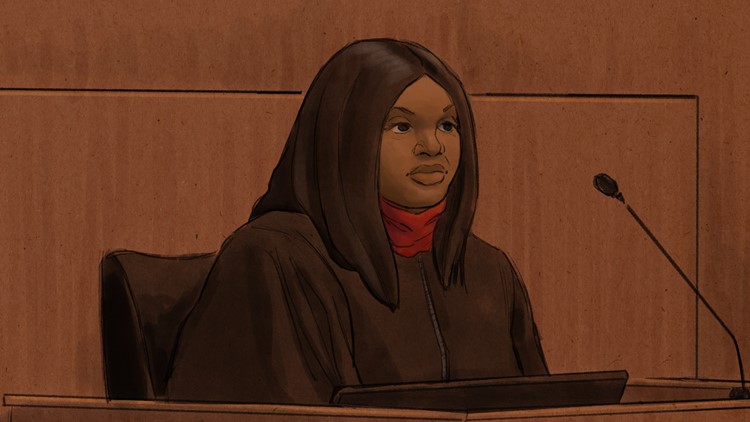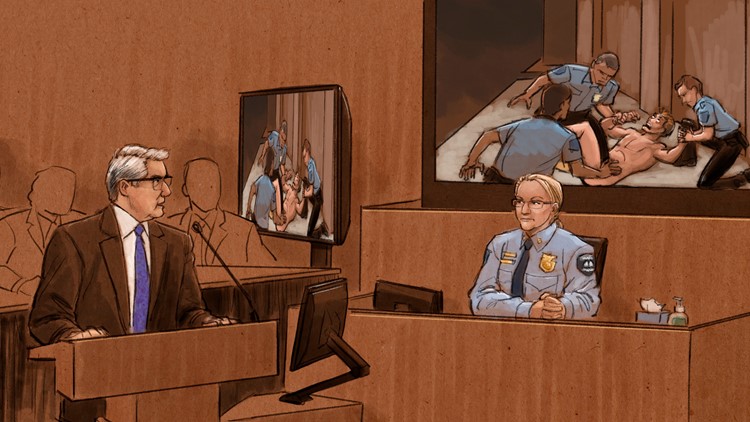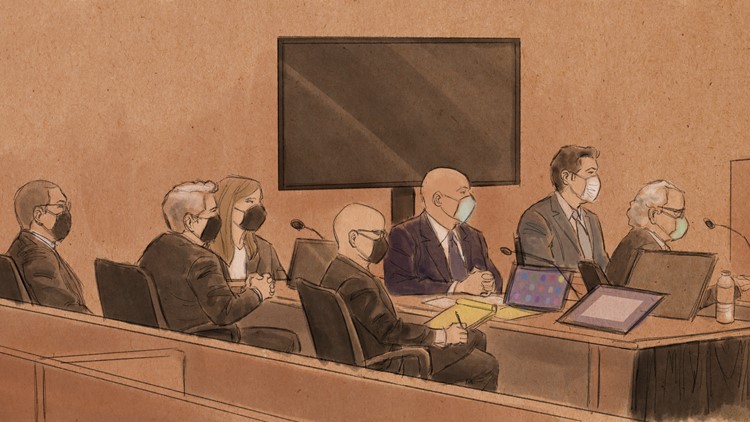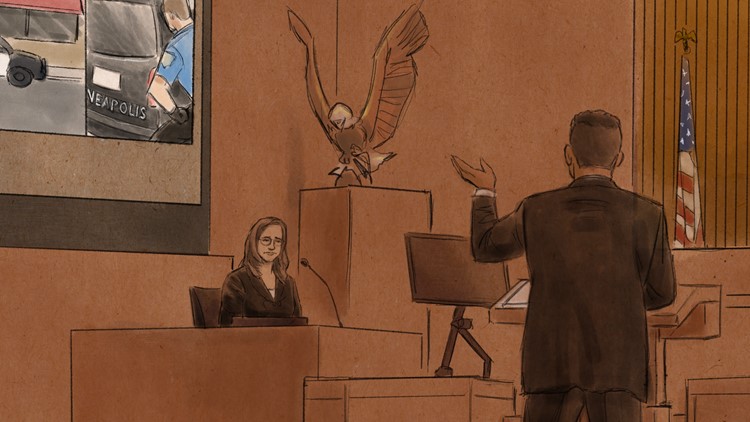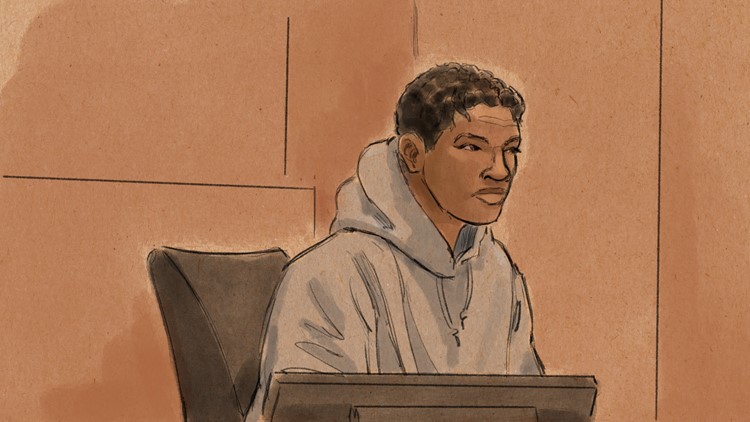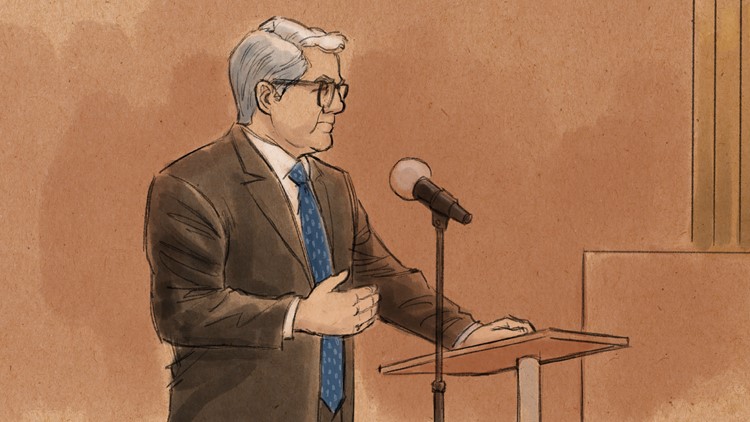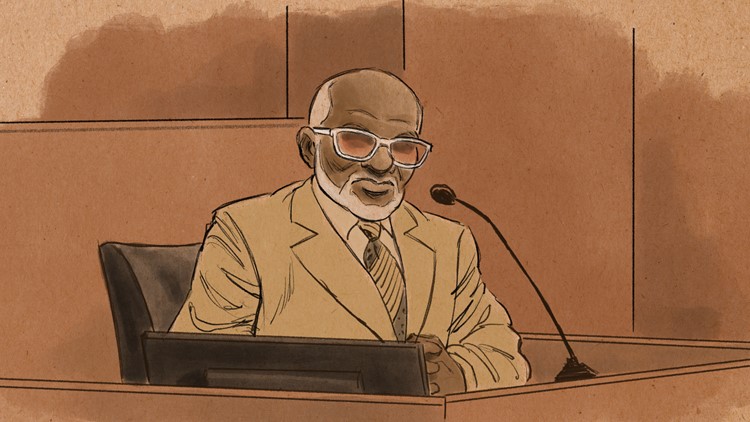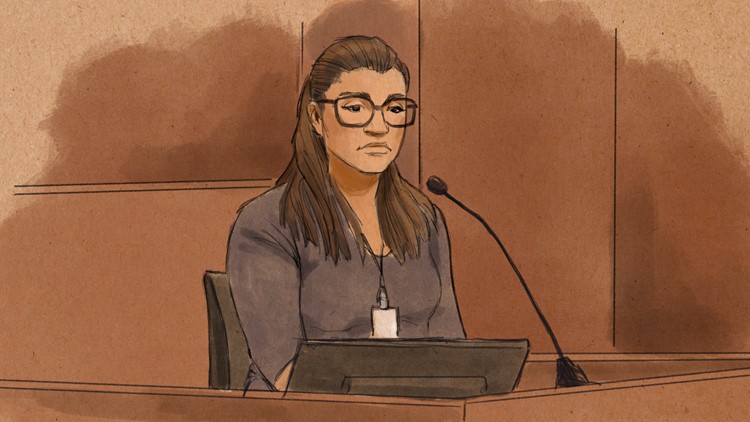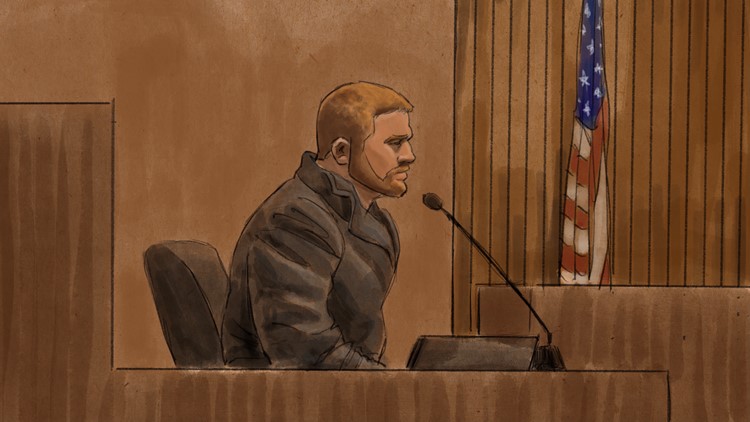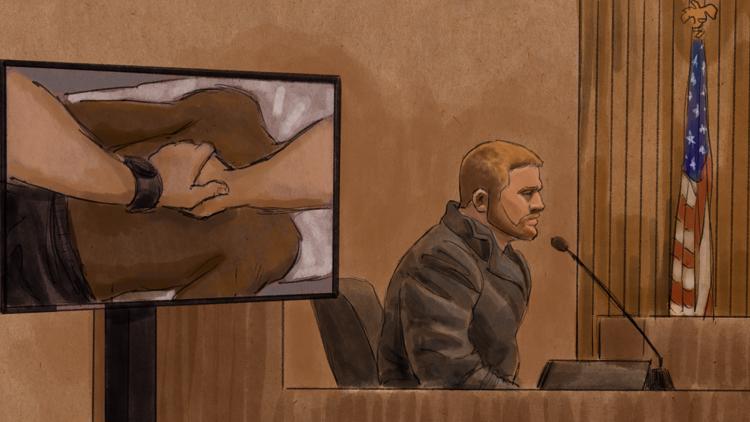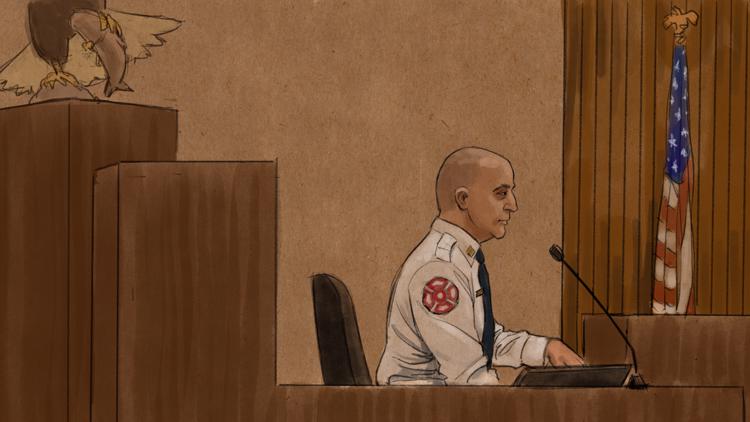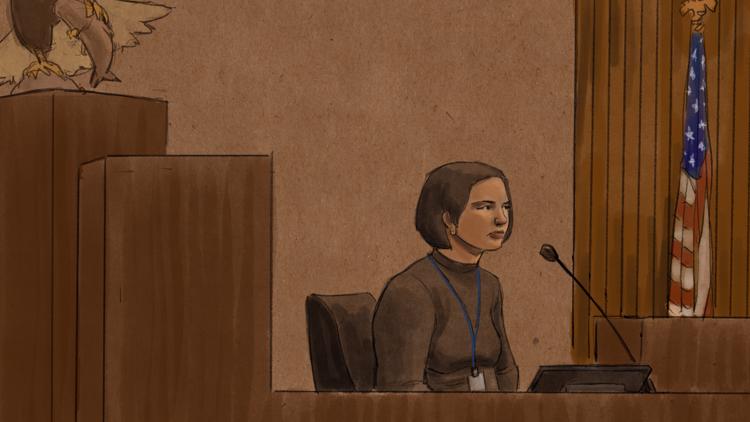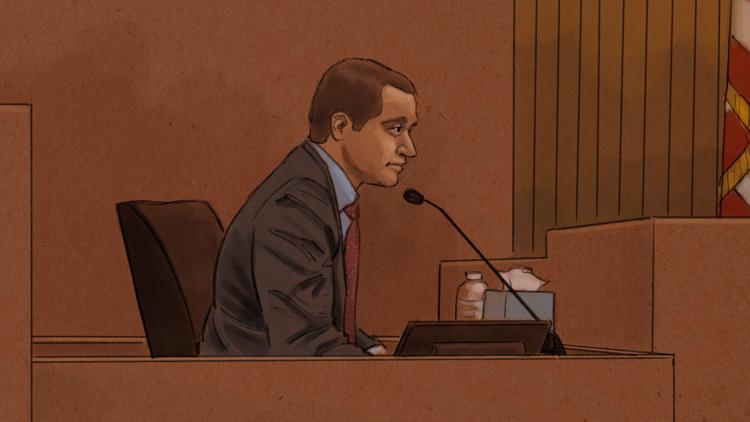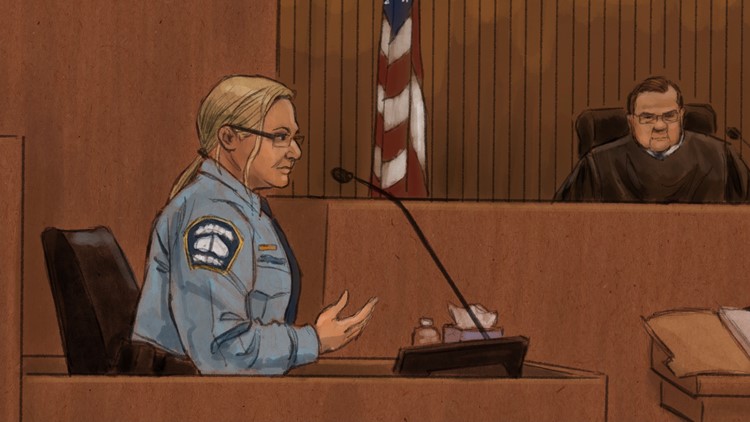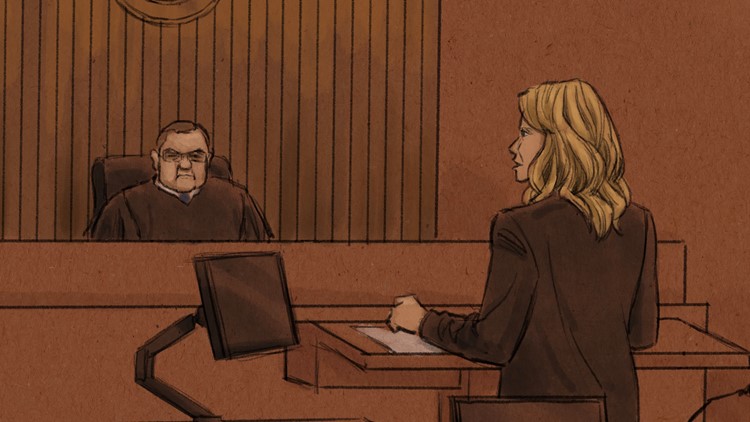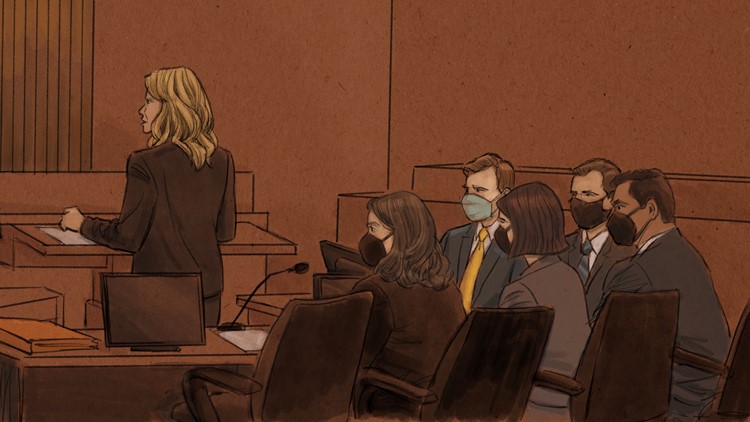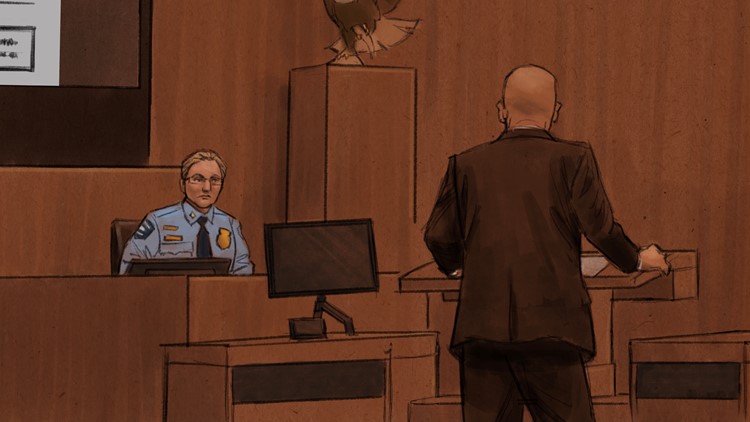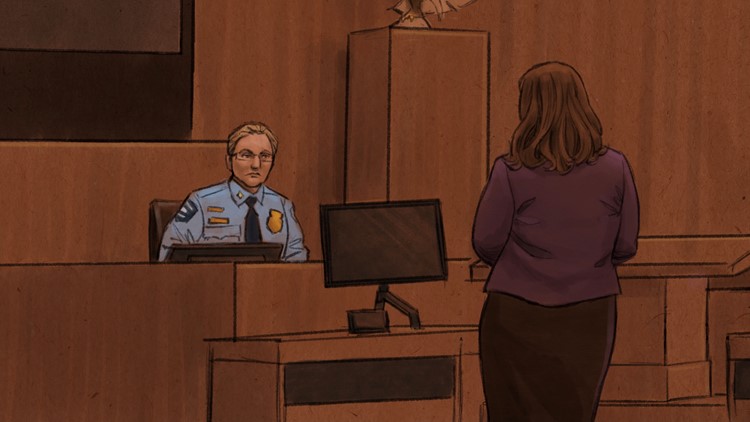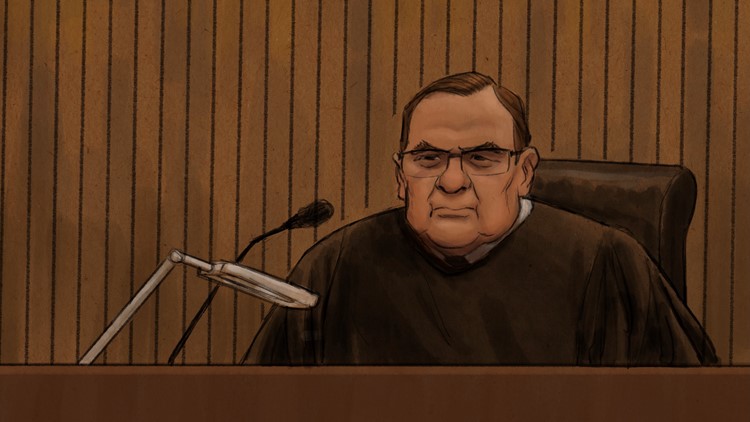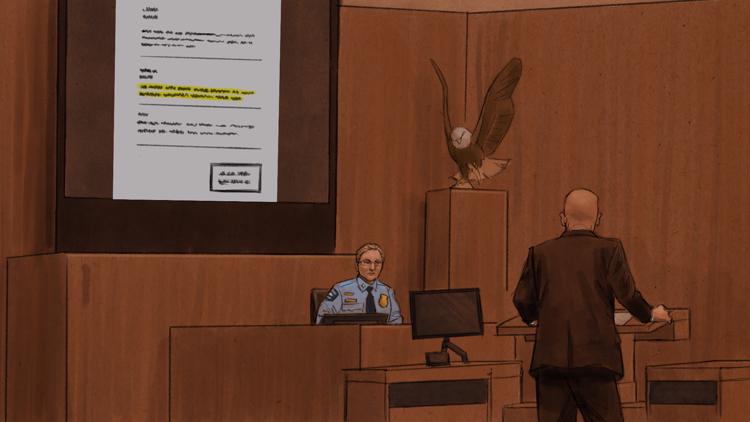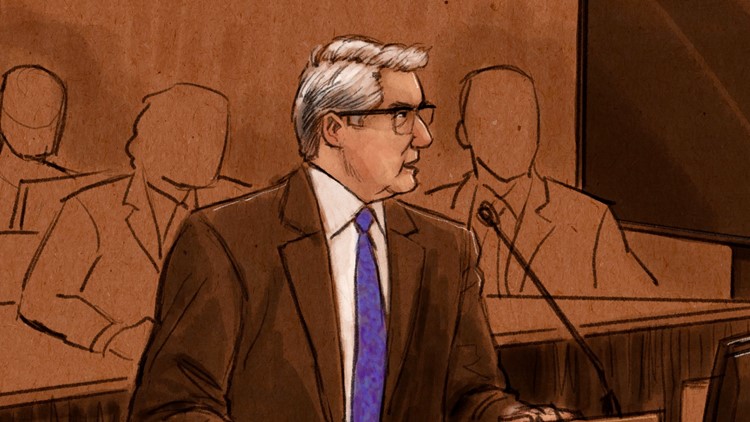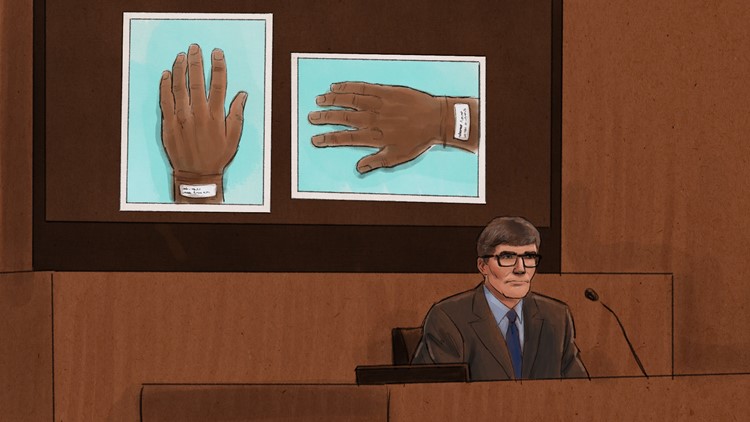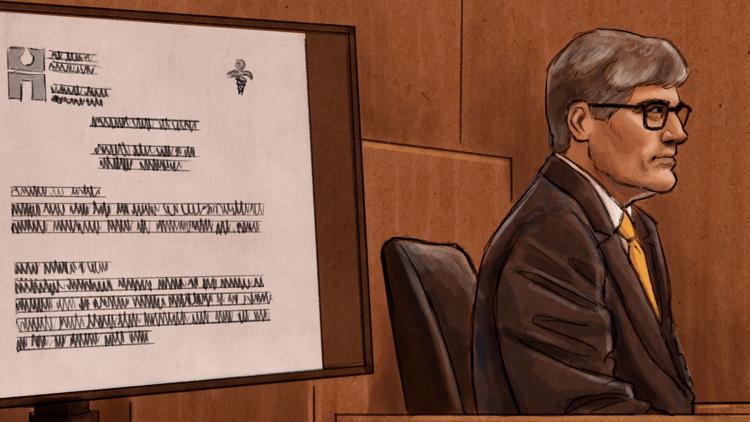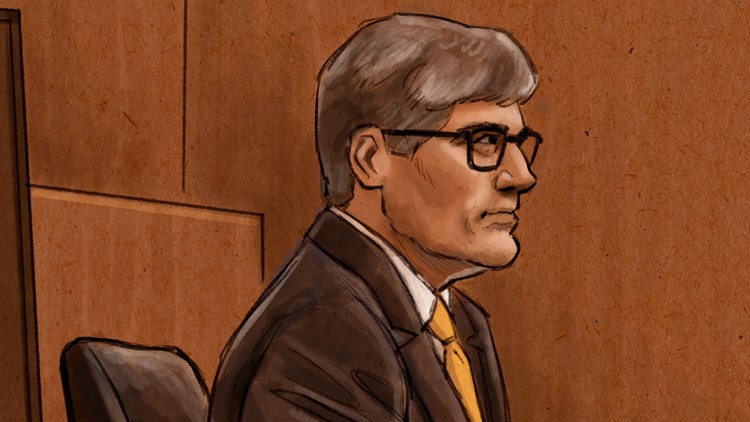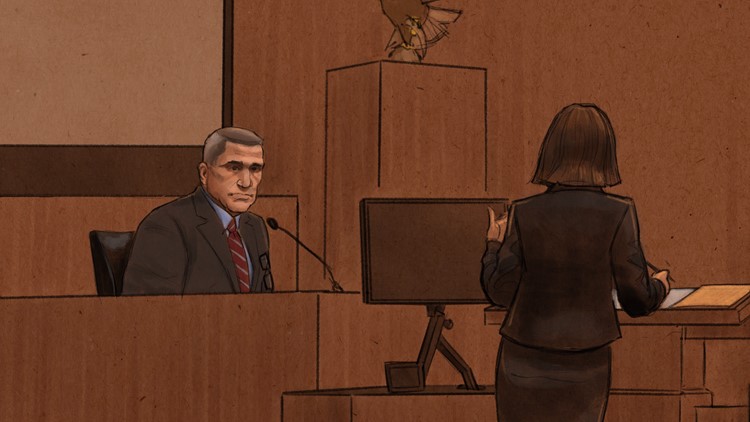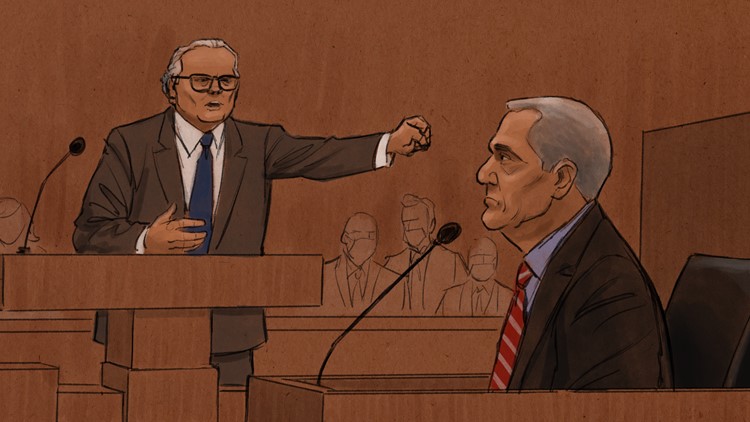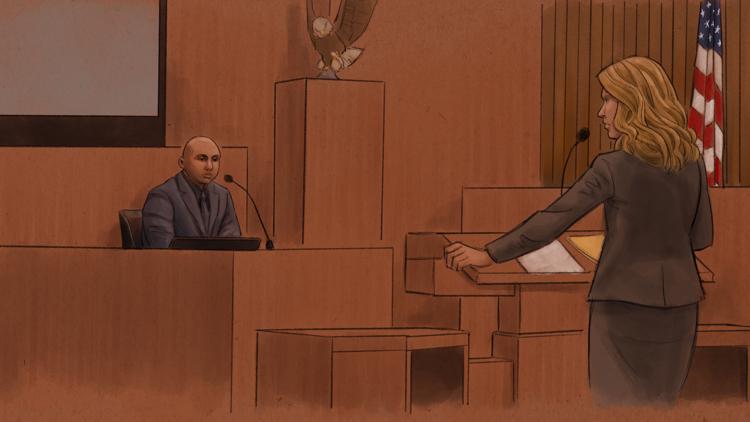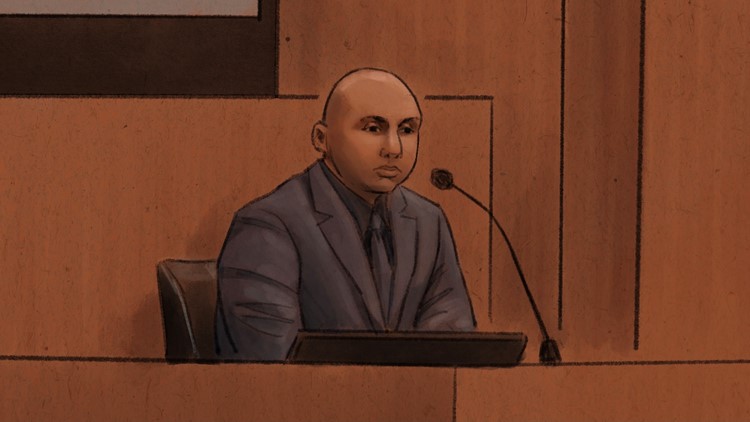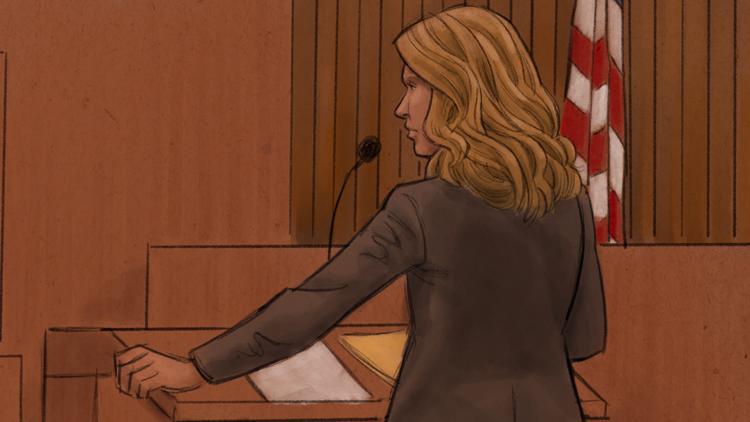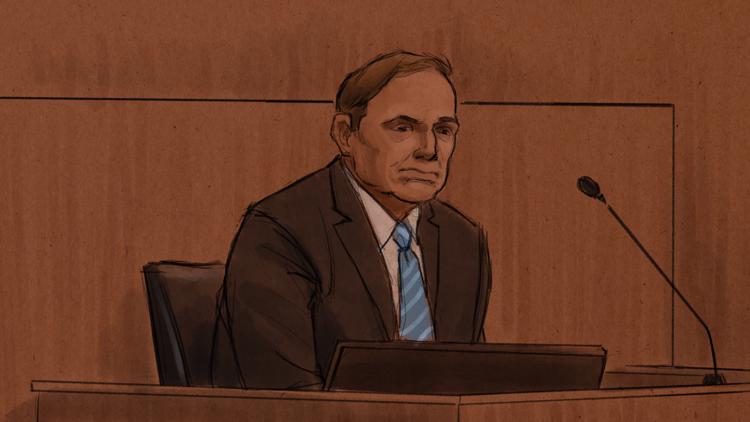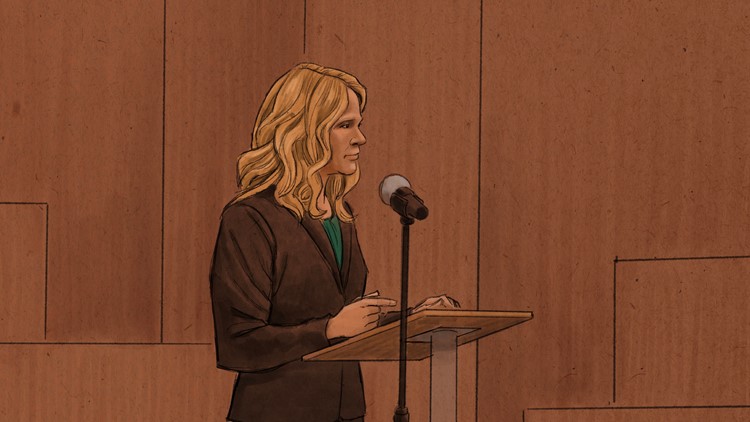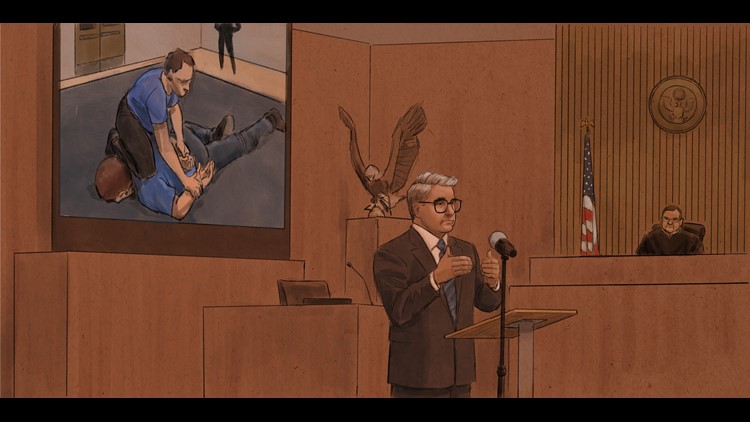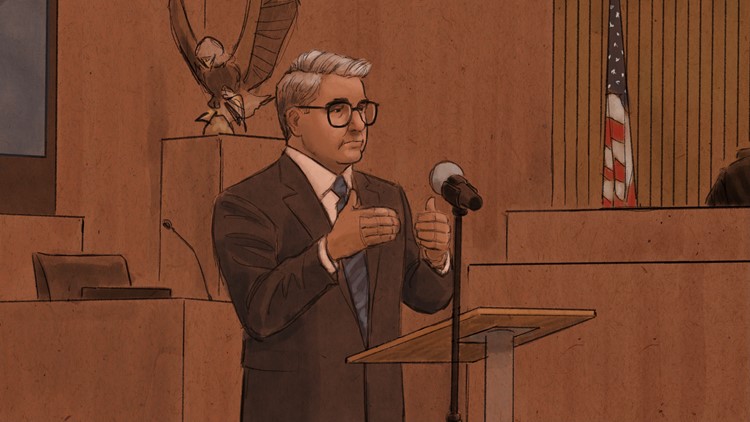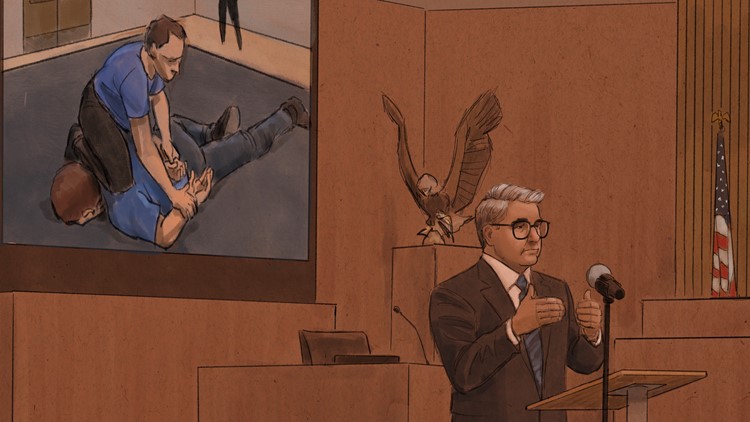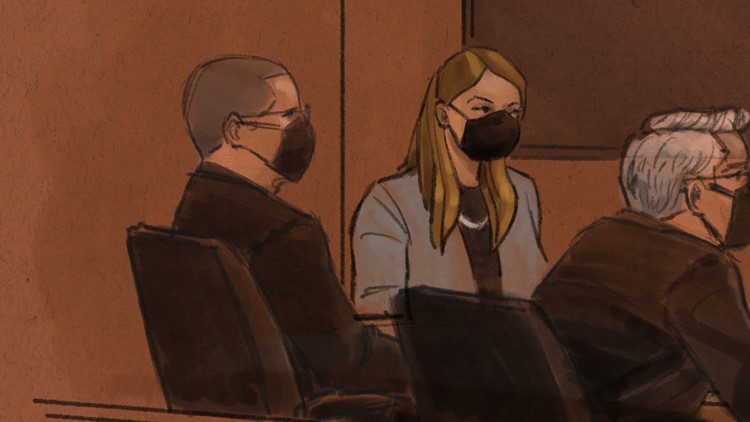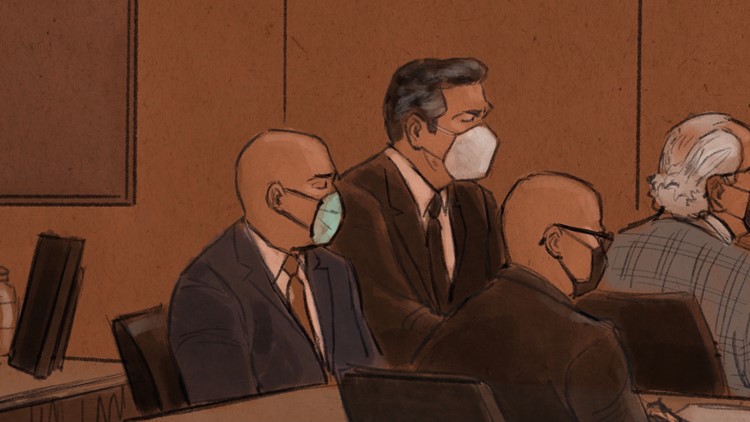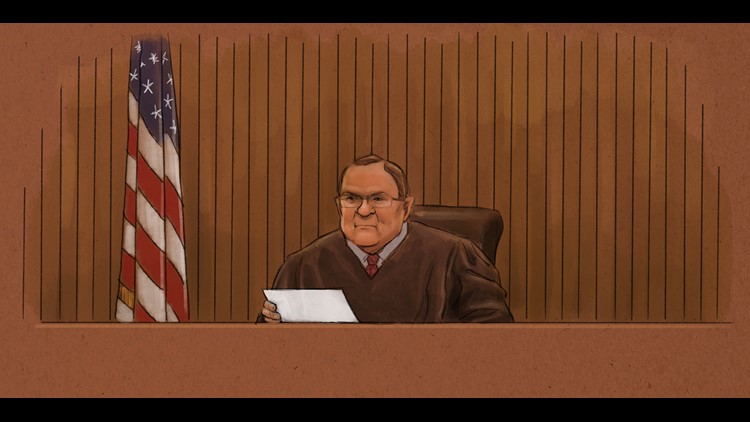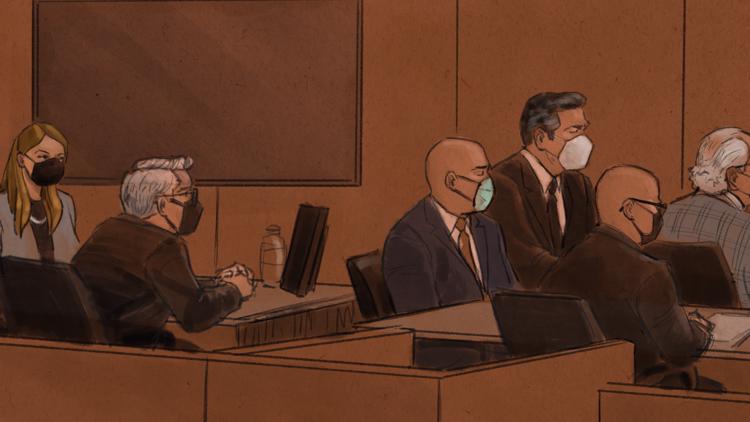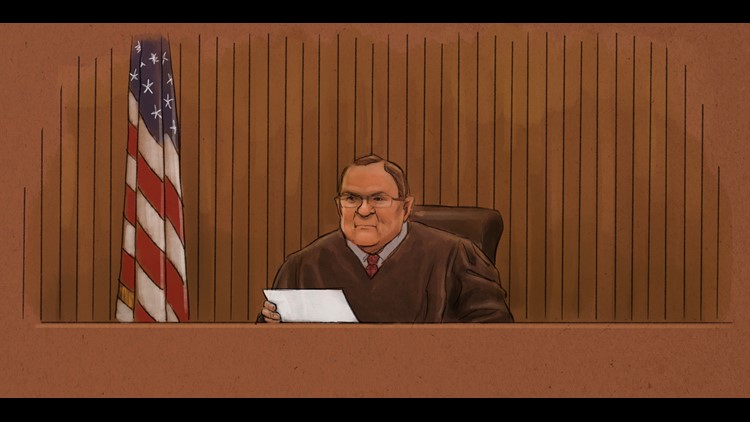ST PAUL, Minn. —
- MPD Lt. Richard Zimmerman on "duty to intervene"
- BCA forensic scientist who processed scene takes stand
- Doctor of emergency medicine and toxicology testifies
Much of the testimony this week at the federal trial for three former Minneapolis police officers has focused on what the defendants could have done to save George Floyd's life on the night he was murdered by fellow officer Derek Chauvin.
Tou Thao, J. Alexander Kueng and Thomas Lane are facing charges of denying Floyd's civil rights while Chauvin held a knee to his neck for more than nine minutes on May 25, 2020. Thao and Kueng face an additional charge for failing to step in to stop Chauvin on that night.
On Thursday, testimony opened with defense attorney Earl Gray, representing Thomas Lane, cross-examining forensic scientist McKenzie Anderson with the Minnesota Bureau of Criminal Apprehension (BCA).
KARE 11's Lou Raguse, who has been at the federal courthouse monitoring the trial since it began, says there was an interesting "hot mic" moment before testimony got underway. He reports that Prosecutor LeeAnn Bell asked Gray how long he anticipated questioning Anderson. When Gray responded by saying half an hour, Bell looked shocked and said "a half hour?"
"Well YEAH," Gray retorted. During the trial the defense has objected repeatedly to questions they say the prosecution team has already asked, and to repeated playing of the same video clips. Judge Paul Magnuson has generally upheld those objections, and has urged prosecutors to keep the pace of the trial brisk.
As questioning did get underway, the courtroom saw the conclusion of Anderson's testimony, and was introduced to the prosecution's next witness, MPD Lt. Richard Zimmerman.
Zimmerman -- who leads the homicide unit -- has more years of experience than anyone else at MPD. He also has a lot of experience testifying in trials over his decades of experience.
When Derek Chavuin was on trial for murder, jurors said Zimmerman's damning testimony played a role leading to the conviction.
Today in the federal trial for Tou Thao, J Alexander Kueng and Thomas Lane -- ZImmerman gave confident testimony that MPD has a policy that says they have a duty to intervene if a fellow officer uses unreasonable force -- even by getting physical.
"By that I mean you have to take an action to push the officer off if that's that case, but you have to take an action," Zimmerman said.
In cross examination, defense attorney Tom Plunkett pointed out several inconsistencies from Lt. Zimmerman's interview with the FBI and BCA after the incident.
"You didn't even know there was an intervention policy when you were interviewed did you?" Plunkett asked.
Zimmerman replied, "Yes that's true."
Zimmerman also told investigators that Officers Kueng and Lane lied to him. Plunkett played back the conversation recorded on body camera video to show that wasn't true.
The prosecution has a few more witnesses to go, but say there is a slight chance the team will finish tomorrow. Next week, we expect at least one of the officers to take the stand.
Court will resume at 9:30 a.m. Friday.
LIVE UPDATES:
2:00 p.m.
Zimmerman was back on the witness stand after lunch.
The prosecution picked up its questioning about how the officers described the incident to Zimmerman when he arrived to 38th and Chicago. Zimmerman further testified that on the night of Floyd's murder, he was not told about key details surrounding Floyd's death, including the use of Chauvin's knee as a restraint on his neck. He said what he saw on police and bystander video in the following days did not match what he had been told.
Zimmerman went on to tell the court that he believes the officers should have intervened, stopping Chauvin from pressing his knee onto Floyd's neck.
“Continuing a knee on the neck for nine minutes or so… is something that is very concerning,” Zimmerman said.
Zimmerman then explained how officers are trained to handle a suspect in restraints under police custody, and that he believes the officers' conduct was inconsistent with MPD policy.
When asked about the presence of bystanders in the videos he later watched, Zimmerman told the court that it looked to him like the people in the crowd were trying to help Floyd and did not pose a threat to the officers.
In cross-examination, Plunkett honed in on a meeting Zimmerman attended with members of the BCA, where he told them he was unaware of the MPD's duty to intervene policy, and that he had never been trained on it. He told the court that he had called them back a few days later to clear up his statement.
Plunkett then showed the MPD's duty to intervene policy to the court, noting Zimmerman left out the phrase "attempt to stop" when reciting it.
Plunkett then when back to Lane's body camera footage at the point Zimmerman encounters Lane and Kueng. The video debunked Zimmerman's claim to the BCA that the officers used the words "bloody foam" and "overdose" when conversing with Zimmerman in the hours after Floyd's death.
12:00 p.m.
Court returned from its first break with the prosecution's next witness, MPD Lt. Richard Zimmerman.
Zimmerman testified about the MPD's duty to intervene policy, and how he believes it applies to all officers, saying there's no "minimum time on the job" that exempts officers from abiding.
“We all wear the same badge and all have the same responsibility,” he said. “It helps the officer, it helps all of us to do the right thing."
Zimmerman told the courtroom he first heard of the incident at Cup Foods when his commander called him and instructed him to go to 38th Street and Chicago Avenue. He said the commander told him that officers were attempting to arrest a man and he had somehow ended up in the hospital. Zimmerman told the jurors he believed he was responding to a "critical incident," which he described as knowing a life may be in jeopardy and police might have been involved.
The prosecution then played Lane's body camera footage from May 25, 2020, showing Zimmerman arriving to the scene and approaching Lane and Kueng. Zimmerman testified that Lane told him that MPD had responded to a report from Cup Foods about counterfeit money, which is when they encountered Floyd. He went on to tell Zimmerman that Floyd was non-compliant and "he kinda seemed like he was on something."
Kueng is then heard telling Zimmerman that the officers had attempted to put Floyd in a squad, but "he was fighting the whole time."
9:30 a.m.
Much of the testimony this week at the federal trial for three former Minneapolis police officers has focused on what the defendants could have done to save George Floyd's life on the night he was murdered by fellow officer Derek Chauvin.
Tou Thao, J. Alexander Kueng and Thomas Lane are facing charges of denying Floyd's civil rights while Chauvin held a knee to his neck for more than nine minutes on May 25, 2020. Thao and Kueng face an additional charge for failing to step in to stop Chauvin on that night.
On Thursday, testimony opened with defense attorney Earl Gray, representing Thomas Lane, cross-examining forensic scientist McKenzie Anderson with the Minnesota Bureau of Criminal Apprehension (BCA).
KARE 11's Lou Raguse, who has been at the federal courthouse monitoring the trial since it began, says there was an interesting "hot mic" moment before testimony got underway. He reports that Prosecutor LeeAnn Bell asked Gray how long he anticipated questioning Anderson. When Gray responded by saying half an hour, Bell looked shocked and said "a half hour?"
"Well YEAH," Gray retorted. During the trial the defense has objected repeatedly to questions they say the prosecution team has already asked, and to repeated playing of the same video clips. Judge Paul Magnuson has generally upheld those objections, and has urged prosecutors to keep the pace of the trial brisk.
When questioning did begin, Gray focused his questioning on pills found on the floor of a Minneapolis police squad car that Anderson and her team failed to collect during a first search warrant. She told Gray that she did see drugs in the squad in photos, and during a search of the vehicle she seized a shoe, a black strap and sampled a blood stain.
When Gray asked if she sized the pill on the ground, Anderson responded that she did not. "Doesn't it look suspicious?" Gray asked. Not necessarily, she answered. Gray told the courtroom that cars are cleaned every morning, implying that it likely was dropped by Floyd. "I'm not an officer, I didn't know that," Anderson responded.
The witness said she did collect them at a later time, and that the pills had Floyd’s saliva DNA. “It was a pill of methamphetamine and fentanyl, correct?” Gray asked. Anderson said the lab detected methamphetamine, but not fentanyl.
"Would you believe it was at some point in Mr. Floyd’s mouth?” Gray asked. Anderson told the court she believes that is a fair statement. Attorney Robert Paule, representing Tou Thao, also focused on the pill in the squad car.
“How many times would you estimate did you collect pills as evidence?” Paule asked. Anderson says they’re collected quite often, but tend to be pill bottles.
“You knew that was a pill, didn’t you?” Paule pressed.
Anderson replied that “it also resembled a mint, or a gum… didn’t have any markings on it.” She confirmed for Paule that she didn’t pick it up, and “there was no information, we weren’t looking for controlled substances, it (the search) was two days after the incident.”
Anderson had been the final prosecution witness called during Wednesday's session. She told jurors that pills and pill fragments found in the Mercedes tested positive for methamphetamine.
In another development, Raguse reports that with just five witnesses left, the prosecution could rest its case Friday or Monday. He says it's possible the jury could get the case and begin deliberations some time next week.
Wednesday, Feb. 9 recap
Dr. Vik Bebarta was the first witness called by the prosecution Wednesday. He was professor of Emergency Medicine-Medical Toxicology and Pharmacology at the University of Colorado School of Medicine.
When pressed by the prosecution Bebarta, relying on his experience in toxiclogy, agreed that various chemicals were detected in George Floyd's blood after he died, including fentanyl and methamphetamine. He told the court it was his opinion that Floyd was a documented, experienced drug user and that the low levels of drugs in his system could not have been a factor in his death. He also said that he thought based on Floyd's conduct and appearance, it did not appear that Floyd was suffering from an overdose or imminent overdose.
Bebarta said he believed Floyd died from asphyxiation due to a compressed or blocked airway.
Following a morning break, Bebarta returned to the witness stand to testify on excited delirium, a severe form of agitation that could arise from high concentrations of stimulants in the body.
On the stand, Bebarta doubled down on his earlier opinion, saying Floyd did not appear to be severely agitated or suffering from the condition. He thought it was unlikely that excited delirium was a factor in Floyd's death.
During the defense team's cross examination, Berbarta was asked further questions about his medical background. He was also asked about other medical conditions that could bring on a state of excited delirium, including a person's mental health or use of stimulants.
Berbata answered a few more questions after the afternoon break, and then was dismissed from the stand.
Next up for the prosecution was McKenzie Anderson, a forensic scientist for the Bureau of Criminal Apprehension (BCA) who was first made aware of the situation between George Floyd and Minneapolis police at 11:30 p.m. on May 25.
Anderson talked about what she saw at 38th and Chicago when she and her team arrived around 1 a.m. May 26. She spoke about evidence gathered from both an MPD cruiser and Floyd's vehicle, a Mercedes Benz SUV.
When the prosecution wrapped its direct questioning, Judge Paul Magnuson excused the jury for the afternoon. Anderson is expected to take the stand again on Thursday morning.
RELATED: Emergency medicine expert, BCA forensic scientist testify in former MPD officers' federal trial

